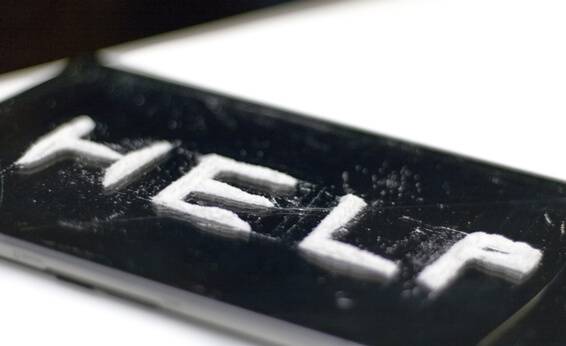
Cocaine Detox
Cocaine has a history of being one of the most popular drugs of choice for hedonistic pleasure seekers. It’s been glamorized by Hollywood and has been the darling of many a business person wishing to give their all to making deals. In some circles, it’s still regarded as an acceptable flavor even though it can turn out to be extremely bitter in reality.
Today, however, cocaine addiction is considered one of the most serious addictions because of its harmful effects on users and their families. It can make you paranoid, make you insecure, cause you to lose all self-respect, and push wayward friends and family away from you.
As cocaine can be very addictive, when you become addicted to it, there are plenty of unwanted physical and mental health effects which come along with the addiction. This can cause someone who is addicted to this substance to start trying to quit using it. However, due to the way that addiction works in the brain, the cocaine addict may experience negative health effects that can make quitting use much harder than just not taking any more of it.
At Aloha Detox, we understand that a cocaine habit can have a massive impact on your life in a multitude of ways. From ruining your career and family problems to physically harming you and leaving you in a state of mental stupor. We’re here to help you quit this addiction and get back to enjoying the sober life.
Aloha Detox’s medical staff are here to help you with cocaine withdrawals. The onsite nurses are skilled and knowledgeable when it comes to any and all concerns that might arise. We proudly offer a comprehensive addiction treatment program that can help take care of your addiction and let you find the inner strength and the determination to kick this habit once and for all!
COCAINE is an ALKALOID drug found in the leaves of the coca plant, the common name of a shrub, Erythroxylon coca, of the coca family. Whole or powdered dried leaves, usually mixed with lime. Cocaine was first used in Western medicine as a local anesthetic. Cocaine is a local anesthetic, particularly for the nose, throat, and cornea, because of its potency in depressing nerve endings. This has been largely replaced by less harmful, synthetic local anesthetics. Used systemically, cocaine stimulates the central nervous system, stimulating false impressions of excitation, elation, well-being, enhanced physical strength and mental capacity, and a lessened sense of fatigue. It also results, however, it increases in heart rate, blood pressure, and temperature, and its use can result in death. Cocaine usually smoked in a unique pipe, it produces an extreme euphoria as it is quickly absorbed from the lungs and carried by the blood directly to the brain.
In 2013, cocaine-related disorders reached 6% of all admissions to drug abuse treatment programs. The prevalence of individuals (68% who seek treatment for cocaine use smoke crack and are prone to be polydrug users, meaning they use more than one substance.36 Those who provide treatment for cocaine use should understand that drug addiction is a complex disease involving modifications in the brain as well as a wide extent of social, household, and other environmental aspects; therefore, Cocaine Addiction Treatment must address this wide context as well as any other co-occurring mental disorders that require additional behavioral or pharmacological interventions.
The symptoms of cocaine abuse will differ depending upon the extent of the addiction, the dose used, frequency of abuse, and biological dependence upon the drug. The most accepted symptoms of Cocaine Addiction Treatment include the following:
- Euphoria
- Petulance
- Restlessness
- Failure to meet responsibilities at work, school, or home
- Strained interpersonal relationships
- Abrupt high levels of energy and excitement
- Nosebleeds
- Gastric ulcers
- Perforation of stomach or sma
- Degrading sexual function
- Incapacity to smell
- Dilated pupils
- Chronic, runny
- Anxiety
- Depression
- Delusions
- Hallucinations
- Paranoia
- Psychosi
- Extremely violent behavior
- Treatment and Withdrawal Symptoms
- Pharmacological Intervention
- Behavioral
In pharmacological approach the addicted individuals are given a precisely supervised dose of vaccine that stimulates the immune system to build cocaine-specific antibodies that bind to cocaine, preventing it from getting into the brain and reduce the dependence gradually. Due to its potent chemical compositions, cocaine addiction treatment is highly susceptible to the risk of relapse with withdrawal symptoms as below
- Trouble concentrating
- Hindered thinking, activity, or physical fatigue after activity
- Restless
- Inability to experience sexual arousal
- Depression or anxiety
- Inclination to self-harm
- chills, tremors, muscle aches, and nerve pain
- Increased craving for cocaine and food
Behavioral Application to lessen the dependency on cocaine has been proving crucial and fruitful. Many behavioral treatments for cocaine addiction have validated to be important in both residential and outpatient settings. Indeed, behavioral therapies are often the most effective treatments for many drug problems, Comprising Stimulant Addictions. However, the integration of behavioral and pharmacological treatments has been proven most effective approach.
Aloha Detox offers a Detox-program and a vast variety of cutting-edge pharmacological and behavioral practices run by experts who understand the complications and the value of your efforts to get back to life as a whole.
Direct Call: Speak to our compassionate admissions specialists at Call us now – 888-892-5642
Online Inquiry: Complete our online form or reach out via email at info@alohadetox.com
